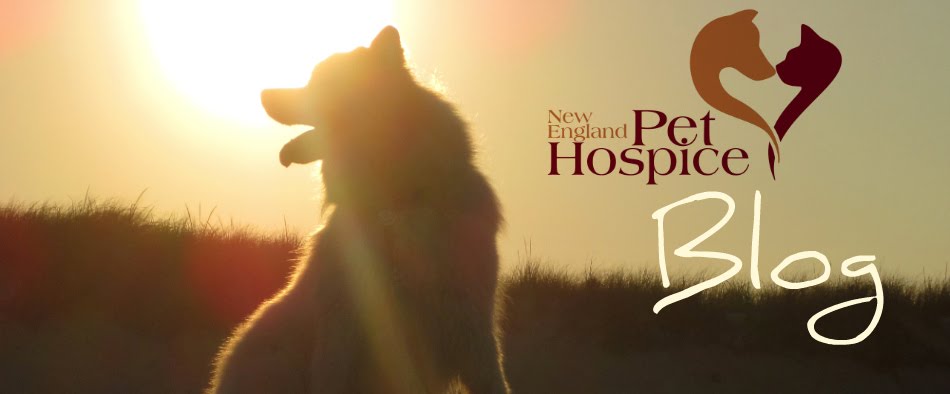- A dog is dying of cancer and takes a dramatic turn for the worse. The family takes him to the vet who offers euthanasia. Mom can't decide and makes an appointment for later that day to bring him back with dad. The dog dies in the car, on the way home, in the lap of the son, his best companion.
- A woman, fiercely independent all her life suffers a stroke and requires round the clock care, which is humiliating and frustrating for her. She fires the staff and later that night suffers a second stroke, dying in the arms of her husband.
- A man sits vigil with his dying cat as she sleeps and rests. He never leaves her side, except once to go to the bathroom and when he returns, he finds the cat has died in his absence.
In each of these true instances, the survivor was wracked with grief and regret over how the death occurred. The mom in the first story fears the dog suffered unnecessarily because she couldn't find the strength to authorize the euthanasia. The husband in the second story was angry at himself for not keeping the staff on, thinking perhaps they could have saved his wife. And the man in the last story wishes he could have waited just 5 more minutes for his break to have been there when his cat died.
But each of those reactions assumes that the dying being had no control over the timing of his or her death, something I do not believe. When you see over and over again beings waiting for someone or something to happen, someone to come or someone to go, a date or milestone to pass, it is hard to deny that there is an element of control or will involved.
 I look at each of these stories from a different perspective. I smile and am filled with admiration for the being who passed on his or her terms. The dog who was grateful for the opportunity to pass on his own terms in the arms of his family. Who didn't want to return to the vet for euthanasia and who wanted to spare his mom the anguish of making a decision. Beautiful, isn't it?
I look at each of these stories from a different perspective. I smile and am filled with admiration for the being who passed on his or her terms. The dog who was grateful for the opportunity to pass on his own terms in the arms of his family. Who didn't want to return to the vet for euthanasia and who wanted to spare his mom the anguish of making a decision. Beautiful, isn't it?The woman in the second story - my grandmother - was intensely independent, stubborn and tough as nails. And, most of all, incredibly private. Nothing would have horrified her more than dying in a hospital, surrounded by strangers. The person she loved more than anything in the world, who had been her life partner in all they did for over 60 years, was the only one she wanted at her passing.
And the cat in the last story held out until the man left so he would not have to see her die. Her last, loving gesture to him. When we see it in this light, we can only be grateful for having shared our lives with such a generous and compassionate being.
In human hospice, we say that people generally die as they have lived. Why would it not be the same case for our animals? They are intuitive, sensitive, devoted in their lives - and so they are in their dying, even as it comes to when and under what circumstances they go.


I plan to pass your information along to the Information and Referral department at the agency where I work, so that they will have it on hand for those who might need you. We all fear that day when we lose someone we love (http://pawsforpraise.wordpress.com/2011/11/09/when-muzzles-go-gray/) but there is always something we can do to help our animals or our other family members retain the dignity of control over their own lives. Even when the choice is euthanasia for our pets, we can certainly help to insure that the time leading up to it, and the moment, are in line with what the dying being needs. No one should feel guilty about the outcome after they have unselfishly tried to do their best...
ReplyDelete